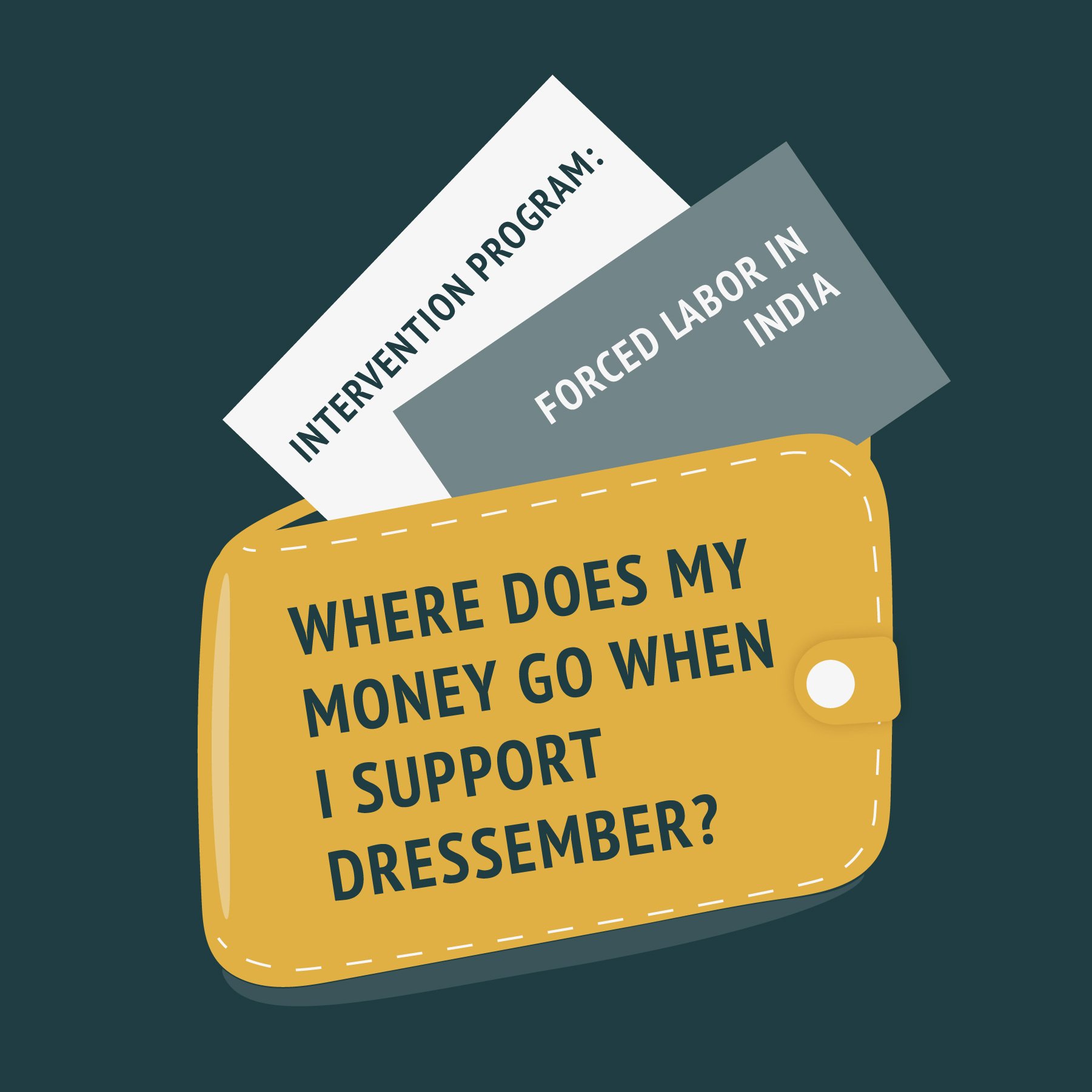The Dressember Network: Enabling Exit Pathways for Trafficked Adults
Today, Zeenat dreams of becoming a wife and mother while working on her jewelry crafting skills. Ruby speaks to raise awareness about the online sexual exploitation of children (OSEC) and is considering pursuing her law degree. Ahana dreams of becoming either a flight attendant or a beautician.
While these three inspiring women have remarkable aspirations and varied desires for the future today, they have a shared past that is hard to imagine. The three women are all survivors of human trafficking in India. Ahana was only 15 years old when she was pushed into the sex trade by her mother. Zeenat was exploited in a terrible brothel in the red light district of Mumbai. Ruby thought she was following her dreams for career success when she was settled with a heavy travel fare debt that she could only repay through OSEC work.
Photo by International Justice Mission
These women have something else in common too: the Dressember Network enabled their exit pathways such that they could continue to aspire to achieve their dreams on their terms.
Since Dressember’s inception in 2013, we have prioritized fighting the widespread issue of sex and labor trafficking throughout India. Dressember partners with local organizations and authorities to disrupt commercial sexual exploitation and forced labor. After exiting trafficking situations, survivors are provided access to holistic aftercare including trauma therapy, medical care, skills training, education, and other comprehensive services. For instance, Ahana continues to receive counseling and educational support as she works toward her goals. Ruby and Zeenat were placed in aftercare homes that helped to empower them and gain independence.
This work is part of the Dressember Network’s “Intervention” pillar. Our intervention efforts focus on taking a stand against all forms of exploitation and creating options and exit pathways for victims of trafficking to live free, autonomous lives. To Dressember, intervention means creating accessible pathways out of “the life,” training front-line workers to identify trafficking, providing trauma-informed support, and using technology to locate OSEC victims.
One of the important programs that comprises our intervention pillar is Enabling Exit Pathways for Trafficked Adults. Through this program, the Dressember Network works alongside local law enforcement to enable exit pathways for those trapped in forced labor situations in India. The program also enables prosecutors to fight on behalf of survivors in court to ensure that criminals are charged and convicted for their exploitation efforts such that they will be unable to traffick others in the future.
Anywhere from 8 to 18 million people in India are currently being trafficked —the largest concentration of people engaged in human trafficking of any country in the world. Forced labor is the most prevalent form of trafficking in India, and it is one that the Indian government has historically denied. Law enforcement has been slow to act in situations of human trafficking and courts are unwilling to award meaningful sentences to those who exploit people in poverty. To make matters worse, departments intended to provide victim rehabilitation services are often underfunded. Even when the policies and intentions are there, all of these issues come together to create a situation in which an overburdened government is unable to properly police the issue of forced labor in India.
This is where the Dressember Network comes in. Through our intervention program, we enable exit pathways for people like Zeenat, Ruby, and Ahana. By partnering with local law enforcement, we rely on local leaders to ensure that we intervene through culturally sensitive and appropriate methods such that we can ensure the best possible outcomes for survivors. Through the Enabling Exit Pathways for Trafficked Adults program, we are able to ensure that migrant families are no longer subject to violence and the people exploiting them are held accountable. We are also able to strengthen connections with local law enforcement and government. These connections are particularly valuable in our push for justice system reform in India. The Dressember Network supports a compelling model that the government can activate and scale to sustainably fight sex trafficking and forced labor across India.
The Dressember Network is made up of 20 organizations that support programs in the following impact areas: advocacy, prevention, intervention, and survivor empowerment. International Justice Mission (IJM) is a partner of the Dressember Network that supports Enabling Exit Pathways for Trafficked Adults. IJM’s mission is to protect people in poverty from violence by rescuing victims, bringing the criminals to justice, restoring survivors to safety and strength, and helping local law enforcement build a safe future that lasts.
Forced labor and the fashion industry are inextricably linked, so one way that you can support an end to forced labor in India is through conscious consumption. For tips on how to bring this practice into your everyday life, check out our ethical fashion directory. When you support Dressember, you help dismantle trafficking holistically and in a way that prioritizes survivor needs and voices. Ready to join us? Register to become an advocate or make a donation today.
About the Author
Miranda Cecil is a second-year at Northeastern University School of Law. She graduated from the University of North Carolina in 2020 (go heels!) and shipped up to Boston. As a North Carolina transplant in New England, she loves exploring her new area on the weekends. In her free time, she enjoys cross-stitching, cycling, and reading. She hopes to use her legal degree and a passion for urban development to continue advocating for human trafficking survivors (and, despite the Boston winter, looks forward to the style challenge this December).




